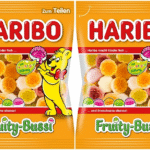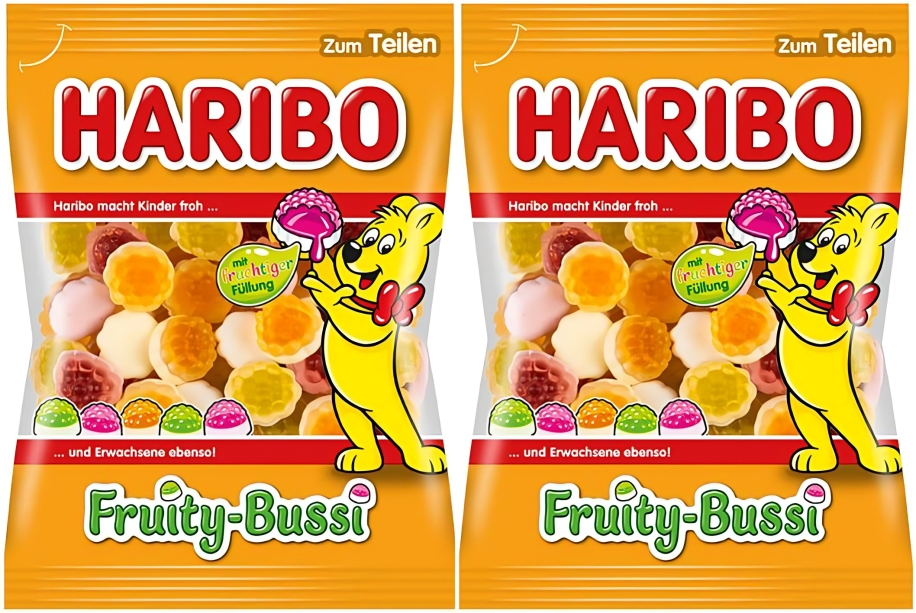In the ever-evolving landscape of consumer culture, where language, lifestyle, and innovation intertwine, certain terms emerge that spark curiosity, creativity, and conversation. One such term, , has gained attention in niche communities, viral content, and modern branding spaces. A phrase that once circulated primarily within internet subcultures has now grown into a symbol of playful expression, sensory indulgence, and, in some cases, unconventional marketing. But what exactly is? Where does it originate from, and how is it being used today?
This article delves into the origin, usage, and evolution of Fruity unpacking its linguistic roots, its role in internet and LGBTQ+ culture, and its surprising adoption in food, beverage, and entertainment branding.
Understanding the Term: A Linguistic and Cultural Origin
The term “Bussi” is a slang derivative formed by blending or reconfiguring words. It gained traction in internet slang circles, particularly among LGBTQ+ communities and meme-driven spaces. “Bussi” is often perceived as a humorous portmanteau, combining parts of familiar words with innuendo or double entendre. The addition of the adjective “Fruity”—itself a reclaimed term in queer vernacular—adds another layer of identity, flavor, and irony.
In queer and online contexts, “fruity” has long been a tongue-in-cheek descriptor for campy, expressive, or flamboyant behavior—often as an affectionate self-reference or playful label. Therefore, when paired with “bussi,” the phrase becomes a whimsical fusion of queerness, flavor, and internet wit.
Though it started informally, “Fruity Bussi” has since entered meme culture, satirical product descriptions, TikTok trends, and even alternative culinary branding—adding layers of nuance and humor.
A Flavor Profile: Literal and Figurative Interpretations
From a culinary standpoint, “fruity” evokes images of sweetness, tang, aroma, and exotic flavor combinations. It brings to mind vibrant fruit-infused desserts, tropical beverages, and rainbow-colored candies. In this way, Fruity Bussi metaphorically suggests an indulgent, flavor-rich experience—playful, sweet, and full of character.
Independent creators and small brands have used the phrase in connection with:
-
Artisanal candy and gummies
-
Scented candles and bath products
-
Cocktail mixers and fruit punches
-
Ice creams, sorbets, and parfaits
Each of these uses leverages the term’s sensory associations to promote products that are colorful, expressive, and often marketed with a knowing wink to the audience.
Fruity Bussi in Digital and Pop Culture
The growth of Fruity Bussi as a cultural touchpoint is deeply rooted in meme culture. Platforms like TikTok, Twitter (X), and Instagram have all hosted viral videos and posts featuring the term, usually framed within humorous commentary, parody branding, or performative skits. These presentations are often exaggerated, self-aware, and saturated with camp aesthetics—reflecting a postmodern digital sensibility.
For instance, a viral TikTok might show a mock commercial for a “Fruity Bussi Lip Gloss” or a “Limited Edition Fruity Bussi Bath Bomb”, laden with glitter, rainbows, and comedic overtones. These examples are less about literal product promotion and more about theatrical expression and participatory internet humor.
The popularity of such content reflects several modern trends:
-
Queer linguistic play and the reclaiming of formerly stigmatized language.
-
Hyper-saturated aesthetics that blend humor with identity.
-
Participatory branding, where consumers co-create culture through parody and memes.
Branding and Commercialization
Despite its informal origins, Fruity Bussi has not gone unnoticed by marketing professionals, especially those in niche and alternative markets. Some independent brands—particularly those targeting Gen Z and queer demographics—have started integrating playful and ironic language into product packaging and digital content.
This style of branding stands in contrast to traditional corporate tone, favoring:
-
Irreverence over rigidity
-
Hyper-personalization
-
Community-centered storytelling
While mainstream brands may avoid overtly using terms like Fruity Bussi due to its unconventional nature, smaller enterprises in fashion, cosmetics, and food innovation spaces see it as an opportunity to speak directly to online-native audiences. Think sticker packs, limited-edition merchandise, fruity-flavored lube, novelty gifts, or pride-themed product lines.
In these contexts, Fruity Bussi becomes not just a term, but a brandable vibe—a flavor of culture that’s bold, unapologetic, and deeply expressive.
Cultural Sensitivity and Nuance
As with all terminology that originates from marginalized or subcultural spaces, it’s important to approach Fruity Bussi with cultural awareness. Though playful, the phrase walks a line between humor and identity, performance and appropriation. When used with context, consent, and community connection, it becomes a tool for joyful self-expression.
However, commodification without cultural literacy can lead to backlash. Brands must therefore exercise caution and authenticity. The phrase shouldn’t be deployed as a hollow gimmick or stripped of its original nuance in pursuit of viral attention. Instead, it should be understood as part of a broader narrative of language evolution, queer creativity, and digital expression.
Artistic Expression and Subcultural Influence
Beyond commerce, Fruity Bussi has inspired artistic and performative works—from digital illustration to poetry, fashion to drag performance. It acts as a creative catalyst, evoking themes of:
-
Sweetness and sensuality
-
Humor and parody
-
Identity and resistance
Visual artists might explore it through vivid color palettes and symbolic compositions, while musicians and poets can incorporate it into lyrics or spoken word to challenge norms and provoke conversation.
In drag culture, particularly, the term fits seamlessly into the tradition of bawdy humor, exaggerated femininity, and playful boundary-pushing. In this sense, Fruity Bussi becomes more than a phrase—it becomes a canvas for subversive storytelling.
The Future of Terms Like Fruity Bussi
Language on the internet evolves rapidly. What begins as a joke can become a cultural motif, a product label, or a political statement. Fruity Bussi exemplifies this fluidity—it is simultaneously absurd and affirming, humorous and empowering.
Looking forward, one can expect similar phrases to rise from digital subcultures and gain traction as memeified language blends with commercial creativity. The evolution of Fruity Bussi offers key lessons:
-
Subculture drives innovation.
-
Language is identity in motion.
-
Playfulness can be powerful when it honors its origins.
Whether it remains a niche joke, a branding opportunity, or a cultural expression, the term embodies the ethos of a generation that refuses to take itself too seriously—while still taking identity and joy seriously.
Conclusion
Fruity Bussi is more than just a quirky internet phrase. It represents a fusion of identity, humor, taste, and culture. From meme pages to merchandise shelves, from TikTok performances to artisanal product labels, the phrase captures a mood—a vibrant, inclusive, and indulgent one.
As society continues to embrace layered identities and expressive language, terms like Fruity Bussi challenge the boundaries of traditional branding and celebrate the creativity of digital communities. It’s playful, it’s provocative, and in its own way, it’s profoundly modern.
In an era that thrives on innovation and authenticity, Fruity Bussi serves as a reminder that even the most unexpected expressions can hold deep meaning—when they’re crafted with care, claimed with confidence, and shared with joy.







